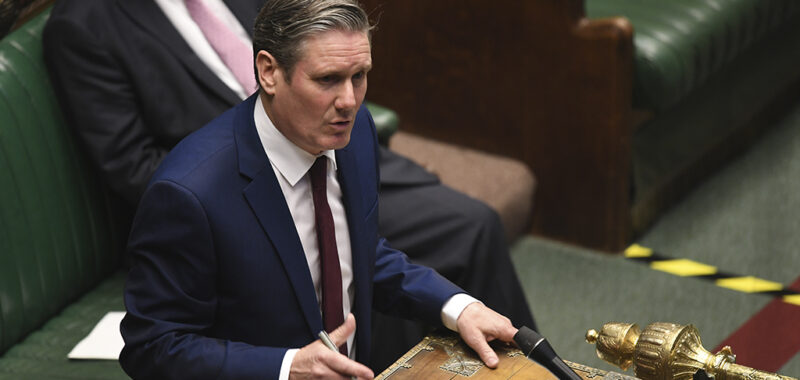Prime minister Keir Starmer today pledged to reform the construction products industry and bring forward measures to speed up remediation of buildings with dangerous cladding, in response to the Grenfell Inquiry phase two report.
Addressing Parliament, Starmer said that the government would formally respond to the recommendations made in the report within six months, but that it would take action earlier if it could.
Among the solid moves he announced was a promise to force building owners to take action to ensure the safety of their buildings.
He said: “This must be a moment of change. We will take the necessary steps to speed this up. We will be willing to force freeholders to assess their buildings and enter remediation schemes within set timetables with a legal requirement to force action if that is what it takes.
“And we will set out further steps on remediation this autumn.”
Last year, Construction News investigated the slow progress on remediating buildings with dangerous cladding and found that insurance, labour shortages and cash were among the factors affecting progress.
In his address to the House of Commons, Starmer also promised to provide annual updates on the government’s progress on the remediation programme.
In addition, he said the government would “reform the construction products industry that makes this fatal cladding so homes are made of safe materials, and those who compromise that safety will face the consequences”.
Starmer also told MPs that the government will write to all companies “found by the inquiry to be part of these horrific failings as the first step to stopping them being awarded government contracts”.
Construction News has contacted Number 10 to ask whether and how it would apply this measure to firms in the supply chain, which do not contract directly with government.
The prime minister apologised for the failings of central government over the past decades.
He cited the inquiry’s conclusion that in the years between the fire at Knowsley Heights in 1991 and the fire at Grenfell Tower in 2017 there were numerous opportunities for the government to identify the risks posed by the use of combustible cladding panels and insulation, but that it failed to do so.
“The country failed to discharge its most fundamental duty, to protect you and your loved ones, the people that we are here to serve,” Starmer said.
“And I am deeply sorry.”
Former prime minister Rishi Sunak also apologised. He said: “As a prime minister, current or former, you are a custodian of the state, and its failures, whether on your watch or not, are something that you feel deeply.
“And to that end I want to extend my deepest apologies to the families and victims of the Grenfell Tower tragedy. The state let you down, and it must never do so again.”

